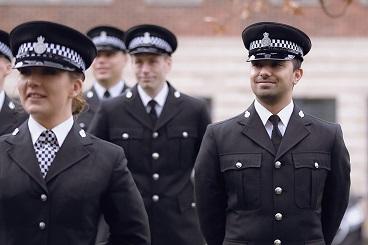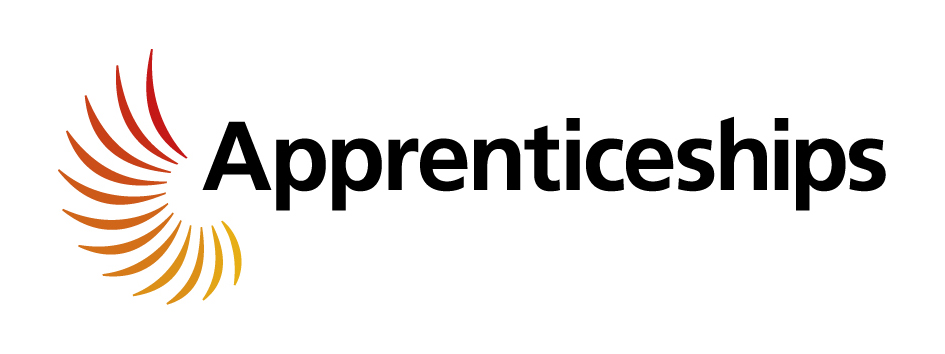.jpg)
Police Constable Degree Apprenticeship
Make a difference in the community.
You are here
- Home
- Apprenticeships
- Programmes in England
- Police Constable Degree Apprenticeship
Police Constable Degree Apprenticeship
The Open University (OU) is an experienced supplier of the Police Education Qualifications Framework (PEQF) and is the largest academic institution in the UK and a leading provider in flexible blended learning. Since 1969, the OU has taught more than 2 million students worldwide.
The policing programme is hosted in the OU’s Business School. Only 1% of all business schools are triple-accredited and the OU is one of them earning AACSB, AMBA and EQUIS accreditation.
The Police Constable Degree Apprenticeship (PCDA) programme mixes on-the-job training with off-the-job learning and will provide the skills and knowledge needed for a policing career that will also lead to a nationally recognised degree qualification. The PCDA offers a great breadth, depth and complexity of learning and also provides officers with an income while they learn.
Our continued success in degree apprenticeship delivery for policing is led by the Department of Policing , which provides a mixture of interdisciplinary academic and professional police experience and expertise. The Department of Policing works closely with the OU's Centre for Policing Research and Learning (CPRL) and collaborates with a wide range of police partners nationally and internationally.
QUICK ACCESS LINKS
Why choose The Open University’s Police Constable Degree Apprenticeship?
The OU is the sector leader in flexible blended learning, allowing apprentices to combine study with the demands of their police role. OU programmes have been designed and tested through existing police partnerships, ensuring that they are cutting edge and fit for the demands of twenty-first century policing. Some distinctive aspects of our programmes include:
- Tutor-supported blended learning that is delivered flexibly around the demands of the organisation enabling apprentices to balance study with personal commitments and minimising time away from the workplace
- High-quality, interactive and engaging learning that has been designed by the OU’s extensive interdisciplinary team of academics and practitioners who are all engaged in cutting-edge research and knowledge exchange with the police partners through the Centre for Policing Research and Learning
- The OU is open to all and supports apprentices, whatever their prior attainment. This means applicants from all backgrounds receive development including help with study skills as they engage with the programme
- Expertise in professional learning that facilitate police apprentices to apply what they learn immediately into practice
- The OU has over 50 years’ experience of providing knowledge and skills to busy working adults and there is a successful and proven history of delivering apprenticeship programmes to public sector and related organisations including the National Health Service (NHS) and the Ministry of Defence (MoD)

This programme is suitable for people who are looking to become Police Constables and deliver an enhanced service to the public, maintaining the peace and upholding the law across complex and diverse communities.
Entry requirements will be set by the relevant police force.
Throughout the programme, apprentices will be exposed to and engage with emerging interdisciplinary research and knowledge exchange initiatives that are being produced by the OU’s CPRL.
Police learners will study a range of topics including:
- Key stakeholders in policing
- Police ethics and accountability
- Criminology: Key theories and perspectives
- Crime prevention
- Digital crime
- Vulnerability and risk
- Public protection
- Evidence-based policing
- Policing and the wider criminal justice system
The PCDA is delivered through blended learning. This means apprentices will gain the necessary skills, knowledge and behaviours required for the role of Police Constable via a mix of innovative, engaging digital and traditional methods. They will be able to access programme content, assessments and feedback through online portals, as well being able to connect with fellow apprentices and contact tutors and support when they need to do so. Apprentices have access to resources and support at their fingertips without causing disruption to their working day or role.
Our well-developed blended learning approach enables the OU to deliver learning that is responsive to both organisational and staff needs, therefore maximising their return on investment.
Online delivery is both varied and interactive, using rich media formats that engage and enthuse apprentices on their journey. Learning can be accessed 24/7 on computers, tablets and mobile devices. Online forums and tutorials as well as email and telephone communication are used to support apprentices throughout the programme.
An apprenticeship requires a part of an employee’s working time to be allocated and protected for off-the-job training. The OU’s tutor-supported online learning gives apprentices the flexibility to pick the most suitable times around organisational needs – enhancing productivity and reducing time demands on officers.
|
Stage 1 |
Stage 2 |
Stage 3 |
Completion |
|
Professional policing practice 1. |
Professional policing practice 2. |
Professional pathways in policing (EPA). |
End-point Assessment (EPA) achieved. BSc (Hons) in Professional Policing Practice awarded. |
|
Evidence, concepts and theories in policing 1. |
Evidence, concepts and theories in policing 2. |
Policing for the future. |
|
| English and maths (functional skills) development* | |||
| Work-based modules |
| Theory modules |
The apprenticeship is delivered in partnership with a police force. The OU programme will be supported closely by academic and practitioner colleagues with policing expertise who will link with employers to provide on-going management of the programme delivery. Apprentices are also supported by OU tutors, who help support both, their academic and work-based learning. These operationally and academically experienced tutors support and meet the apprentices regularly and also support the work of in-force tutors.
On top of account management support, your organisation and apprentices will be supported by the following roles:
Practice Tutor (PT)
The PT is a key role and provides individual support to apprentices to progress and complete all the requirements of the apprenticeship or professional programme they have enrolled in. The support is tailored to the context of each learner’s professional duties and their workplace environment. Regular engagement with each learner’s line manager or work-based supervisor is a critical component of this role. In addition, the PT coaches the apprentice to integrate their academic learning with their professional work, guide them in the development of their portfolio and prepares them for their end-point assessment.
There are further roles and teams that support both apprentices and employers, and that work very closely with the PTs.
Academic Tutors
The role of the Academic Tutor is to support success by using, interpreting and building on the teaching resources produced by the OU and provided to apprentices. They monitor progression, mark assignments, provide personalised feedback and work in partnership to support the apprentices’ academic, personal and professional development. In addition, Academic Tutors provide pastoral support to apprentices. They are sometimes also referred to as Associate Lecturers or Module Tutors.
Apprenticeship Enrolment and Support Team (AEST)
The AEST supports apprentices throughout their Apprenticeship journey. This team of friendly Senior Advisors can offer advice and support for a range of queries apprentices may have whilst studying their modules, whether that be for advice on an upcoming assignment or exam, navigation around the OU online learning platforms or when they are experiencing difficult circumstances that are having an impact on their studies. This support team is able to reach out to a wide range of relevant teams within the University to help apprentices get back on track again.
English and Maths Support Team
This team is made up of English and/or maths specialist tutors and support staff. They work with apprentices who are required to achieve English and/or maths qualifications during their apprenticeship. These specialist tutors are able to provide one-to-one support in areas of challenge and to help prepare the apprentice for the formal qualification tests.
Apprenticeship Programme Delivery Managers (APDM)
This role supports employers to recruit and onboard applicants on to the chosen apprenticeship programme. APDMs provide information, advice and guidance and carry out an initial assessment to ensure the apprenticeship is the right one at the right level for the individual. APDMs provide quarterly management information reports to employers detailing apprentices progress and put interventions in place where an apprentice is in need of support. Employers will have a named APDM to be the primary contact for apprenticeship delivery throughout the programme.
Tutor Constable (in-force tutor)
This is a person identified as responsible for providing 1:1 operational development to Independent Patrol status and mentoring to Fully Operational Competence status.
Line Manager
This is a person in the workplace who supports the choice of apprenticeship programme for their employee or applicant and is involved in the onboarding process with their applicant. Line managers facilitate the apprentice to take off-the-job planned training time and they fully engage in 12 weekly progress review meetings with the Practice Tutor and apprentice. Line managers have regular one to one meetings with their apprentices to integrate the apprenticeship into performance and development. They are key to enabling a successful work-based project and completion of the apprentice’s end-point assessment.
Follow Open University Police Education on Twitter at @OUPolicing.
Are you an employee interested in applying for an apprenticeship?
To apply you first need to gain approval from your employer. Please contact your organisation with an expression of interest. If your employer is happy to support your application, they will then contact us.
The process for employers to follow is:
- The employer contacts the OU.
- An account manager will contact the employer to discuss the requirements of the programme.
- The employer chooses the OU as the training provider, confirms how they wish to procure the apprenticeship and signs the written agreement if applicable.
- The employer selects prospective apprentices and sends their details to the OU.
- The OU contacts the prospective apprentices and invites them to formally apply via the OU’s secure applicant portal.
- Prospective apprentices gather evidence to demonstrate their eligibility and submit their application.
- Apprentices take part in the on-boarding process where they are introduced to the apprenticeship and supported by an Apprenticeship Programme Delivery Manager (APDM).
- Following successful registration, apprentices are recommended to engage with the pre-study material.
The following programmes are offered through our innovative blended learning platforms in partnerships with police services nationally:
- Police Constable Degree Apprenticeship (PCDA)
- Police Community Support Officer Apprenticeship (PCSO-A)
- Degree Holder Entry Programme (DHEP)
- Special Constable Programme (Phase 1 and 2 learning)
Degree Holder Entry Programme (DHEP)
We also offer the PEQF Degree Holder Entry Programme (DHEP) which is aimed at degree-holders, attained in any subject area. This two-year practice-based programme enables candidates to perform the role of Police Constable. Successful completion results in the achievement of a Graduate Diploma in Professional Policing Practice. Although not an apprenticeship itself, the Degree Holder Entry Programme is delivered using the same methodology as the PCDA.
INFORMATION FOR EMPLOYERS
Develop the relevant skills for your organisation, improve productivity and achieve higher staff morale.
INFORMATION FOR APPRENTICES
Earn while you learn and develop the skills you need to gain access to sectors you want to work in.
PROCURING VIA FRAMEWORKS
We’re an Approved/Appointed Supplier on a large number of national frameworks and dynamic purchasing systems. See which frameworks are available to procure this programme through.

Chartered Manager Degree Apprenticeship
The Chartered Manager Degree Apprenticeship provides apprentices with higher level leadership and management skills, core competencies and desired behaviours to become a more effective manager.

Digital and Technology Solutions Professional Degree Apprenticeship
The Open University’s Digital and Technology Solutions Professional Degree Apprenticeship programme develops the higher-level skills and behaviours required to create confident and capable digital and technology professionals.

Nursing Associate Higher Apprenticeship
The Nursing Associate is a highly trained generic support role within the field of Nursing which acts as a ‘bridge’ between unregulated Healthcare Assistants (HCA) and Registered Nurses.

Registered Nurse Degree Apprenticeship
The Open University’s Registered Nurse Degree Apprenticeship supports employers to develop their healthcare support workers (HCSWs) towards registration with the Nursing and Midwifery Council, as either Adult, Children and Young People, Learning Disabilities or Mental Health Nurses.

Senior Leader Apprenticeship
Our Senior Leader Apprenticeship develops inclusive leaders who are responsible for developing ethical, innovative and supportive cultures with the ability to deliver results, manage complexity and instigate change.

Social Worker Degree Apprenticeship
Our Social Worker Degree Apprenticeship is a practice-based learning programme that combines theory and practice-based learning and development, delivered flexibly around the demands of your workplace.

Systems Thinking Practitioner Apprenticeship
Graduates from the programme will be able to apply systems thinking in practice, creating leaders and managers capable of making strategy, managing change and co-designing systems interventions in your organisation.

Police Community Support Officer Apprenticeship
Our Police Community Support Officer Apprenticeship programme mixes on-the-job training with off-the-job learning and provides the skills and knowledge needed for a policing career.

Police Constable Degree Apprenticeship
The Police Constable Degree Apprenticeship is delivered through the Police Educational Qualification Framework (PEQF) and led by The Open University Policing Organisation Practice (POP) Team, and provides a mixture of interdisciplinary academic and professional police experience and expertise.
 |
 |
Programme Summary
Location: England
Duration
- 3 years, including end-point assessment.
Level and standard
- Apprenticeship Level 6
- Apprenticeship standard
Specific entry requirements
- No
Recognition of prior learning (RPL)
End-point assessment (EPA)
- Integrated
Qualifications achieved at the end of the programme
- BSc (Hons) in Professional Policing Practice
- Police Constable Degree Apprenticeship awarded by the Institute of Apprenticeships and Technical Education (IfATE)
Additional information
Contact usDisability support
Further information
 |
For a more detailed look at our Police Constable Degree Apprenticeship, download our brochure. |
Not on our mailing list?
Sign up to receive regular emails that are full of advice and resources to support staff development in your organisation.




